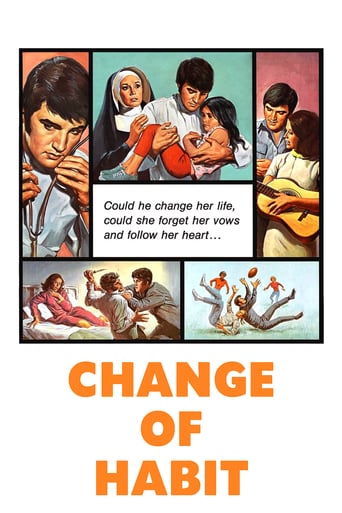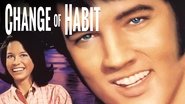hackraytex
A lot of us who were born in the 50's can remember what we were doing on two events. The day John F. Kennedy was assassinated and the day Elvis Presley died. I had just gotten home from work and my then wife told me that it just came over the TV that Elvis Presley had died. A very heartbreaking day.We have learned so much about what was going on in Elvis Presley's life over the years because he was very private with his personal life which we are all entitled to.We now know that he desperately wanted material better than the beach movies that he had been stuck in and wanted to do drama like with King Creole and Flaming Star. It is so ironic and tragic that what turned out to be his last movie was the dramatic part that he had been begging for over the years. This could have been the breakthrough for a much more rewarding period and his growth as an actor.I like to think that he decided to take a break from acting for a few years to concentrate on his singing and return to acting with this as his launching pad. I have read that he was thinking of cleaning house and finally breaking with Parker since that would have freed him from the straitjacket that he had been in. I read that he also had decided to stop gorging on junk food and start working out again. Maybe if he had not gotten divorced he could have avoided what we now know as severe depression and losing control of his eating and not continuing to work out and take care of himself. Since he had announced that he was getting married again to Ginger Alden, he had not given up on life and was making plan for the future.A Change Of Habit gives us a glimpse of what could have been. Rest in peace Mr. Presley.
bkoganbing
Change Of Habit marked the farewell big screen performance of Elvis Presley who plays a doctor practicing medicine in a ghetto clinic who gets the help of three new female aides at his practice. Mary Tyler Moore, Jane Elliott, and Barbara McNair are his new help and they're all quite beautiful. And they're all quite committed to being nuns.I can understand the need for the idea that the women be accepted for themselves first, but why keep it a secret from Presley? And of course Elvis starts getting romantic notions about Mary and can't understand why she keeps putting him off. The answer is there would really be no movie.Despite the silly premise Change Of Habit was a good film for Presley to end his screen career. The latter half of his output of films were distinctly inferior to the first half, but this one broke a trend. And it also gave him a late career hit with Rubbernecking. One thing about those latter films, the good songs had pretty much dried up, this was a pleasant exception.As he did with all of Elvis's movies, Colonel Tom Parker provided him with a fine supporting cast with folks like Regis Toomey as the local parish priest, Richard Carlson as the bishop, Ed Asner as a police lieutenant and Robert Emhardt as the neighborhood loan shark, known to one and all as 'the banker'. I cannot forget Doro Merande and Ruth McDivitt as a pair of old biddies who provide a Greek Chorus commentary on the comings and goings of everybody in the neighborhood. Dana Carvey must have seen this film and was inspired to create his Church Lady character on SNL.All and all a really good film for Elvis to have ended his big screen career with.
Bjorn (ODDBear)
Presley's last feature film gets a plus for being...well...a Change of Habit. It's certainly different from most of his films. It's a bit more serious in tone. The locations are most definitely a big departure from the exotic and beach front settings so apparent in earlier films. And the King plays a Doctor...Dr. John Carpenter no less.But unfortunately Elvis left the building way before shooting ever started here. It's a crying shame really since this movie has a decent story, a wonderful central performance by Mary Tyler Moore, an uplifting message concerning personal faith and human perseverance and solid songs. Elvis doesn't even make an effort to play a ghetto doctor who falls for a nun (Moore) who's disguising herself as a plain nurse along with two fellow nuns.Mary Tyler Moore owns the film, hook line and sinker, and portrays well a nun who faces tough choices when she discovers love and an easier way to make a difference in peoples lives in a tough neighborhood riddled with gangsters and poverty.Elvis is present, little else, and provides well when the songs come in play. "Change of Habit" is a fun song which opens the film; he looks great rockin' out with "Rubberneckin'" and in the film's closing scenes performing "Let Us Pray". "Have a Happy" is a fun song but feels painfully out of place as this film doesn't play out like a Presley musical.By this time Presley had begun to focus exclusively on his music and this film was probably a joy for him to make...'cause he was about to finish his excruciatingly long film contract and he could jump head on into his real passion; music. Sadly; this could have been a real winner, instead it's somewhat lacking due to his (overly) relaxed and care-free performance.
Brian Camp
I watched CHANGE OF HABIT for the first time on January 8th to commemorate the 75th anniversary of Elvis Presley's birth. It's quite a change of pace for the star, an attempt to mix social commentary with an Elvis musical. It doesn't quite work, largely because the script and the direction, products of the old Hollywood studio mindset, clash with the young performers and the ideas in the story that were clearly in sync with the tenor of the times. Had they gotten a younger, more innovative director, it might have worked. But that can be said about so many of Elvis's movies.The basic premise is sound. The three nuns in the film played by Mary Tyler Moore, Jane Elliot, and Barbara McNair have clearly defined professional skills and a strong commitment to using them to help the disadvantaged. The women are unquestionably sincere and quite admirable and courageous. Their characters provide the emotional core for the story of a free clinic operating in a multi-ethnic ghetto neighborhood. From a production standpoint, the casting direction and some of the background work offer an authenticity quite rare in a studio product of the time. Despite being shot largely on the Universal Studio backlot (the New York street set), the street life portrayed has a rhythm and level of noise and aggression that wasn't often convincingly captured in studio productions. There are a large number of black and Latino performers in the cast and not a single one of them looks like they stepped out of Central Casting. A cute Puerto Rican actress, Laura Figueroa, plays a 17-year-old street girl who has the hots for Elvis. One of the black militants who confronts Barbara McNair's Sister Irene is played by Ji-Tu Cumbuka, who went on to quite a number of important roles in black-themed films and TV shows (e.g. UP TIGHT, TOP OF THE HEAP, "Roots"). There's even a street fair with a Latin band that resembles events I used to attend in the South Bronx back in the day.The one significant false note in the casting is the inclusion of two stock old white lady characters (played by Doro Merande and Ruth McDevitt) who stick their heads out of the windows regularly to cluck their disapproval, as if they'd been held over from the Frank Capra road company. Hollywood veteran Regis Toomey (who was actually in a Capra movie, MEET JOHN DOE) is on hand as a grumpy old parish priest who antagonizes the nuns, but, to its credit, the film refuses to soften the character or make him one of those stock Irish priests with a kind word and a useful homily for every situation. Instead, he's presented as a man fearful of his parishioners and clearly out of step with the times. In another interesting casting touch, Ed Asner turns up as an enlightened beat cop who speaks Spanish to the street's residents. Cult favorite Timothy Carey (THE KILLING) plays a surly butcher who regularly cheats the customers.There are some alarming elements on display, though. In one scene the doctor played by Elvis takes a young autistic girl of about five or six into his arms and manhandles her in a bout of "tough love," urging her to get her "anger" out. To a modern viewer it looks an awful lot like child abuse. (As another comment here points out, this was an attempt to dramatize a now-discredited treatment method called "rage reduction therapy.") At one point, Elvis tries to dissuade the nuns from working in his clinic with a jaw-dropping line that has to be heard to be disbelieved: "The last three nurses who worked here couldn't take it. Two of them were raped, one even against her will." Later, an attempted rape of one of the nuns at knifepoint by a disturbed patient is brushed off quite casually. Maybe they assumed it wasn't "against her will." Also, this has to be the only Elvis film where you hear the words, "faggot," "bitch" and "nigger." (And it was rated "G," to boot!)While Mary Tyler Moore does an excellent job as Sister Michelle, who is torn between her love for Jesus and her love for Elvis, I can't be so generous in assessing Elvis' performance. He's quite charismatic, despite the inappropriate hairstyle and wardrobe, but he holds back in every scene. With a better script and direction, the role of an embittered Vietnam veteran who carries out his moral obligation to a dead soldier by becoming a doctor to help the poor could have been a breakout performance for the singing star. Instead, Elvis comes in, reads his lines with a minimum of involvement and refuses to express the emotions that the character must surely be feeling. What happened? Why didn't he step up to the plate and knock this one out of the park? He had it in him. Instead, this was his last acting job. All I see now is sad, wasted potential. It hurts.




